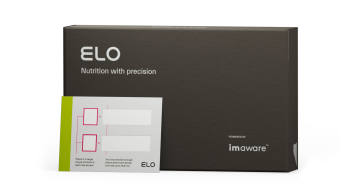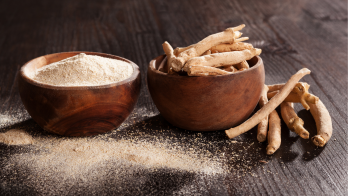Foolproof tips and tricks for taking supplements
Supplements have a multitude of health benefits, but remembering to take them can prove to be a challenge. Here are the top foolproof tips and tricks for taking supplements.

Whether you want to lower your risk of certain diseases, combat a vitamin deficiency, or improve your daily performance, taking the right supplements can enhance your overall health and wellbeing. However, you have to take them consistently to reap the benefits and this can be a challenge when your calendar is booked solid.
So, how can you remember to take your supplements and stick to a consistent schedule? Let’s first start off by talking about why supplementation is important.
Why supplementation is important
While you can get many nutrients from a healthful, well-balanced diet, you may not get all of them on a regular basis. For example, only 28% of adults eat their recommended five servings of fruit and vegetables each day, leaving many people with nutrient gaps [2,3]. Specifically, studies have shown that Americans consume less than the recommended daily intake for vitamins A, C, D, E, K, as well as calcium, magnesium, potassium, choline, and vitamin K [4].
That’s where supplements come in. Think of supplements as an insurance policy rather than a replacement for food. They fill in the gaps and make up for shortfalls in our diet.
Research has shown that supplementation may also have significant benefits for specific groups, and indications. For example, alpha lipoic acid has been shown to be beneficial for cholesterol reduction, and vitamin C may reduce the duration of cold symptoms [1, 8].
How to create a supplement habit
Remembering to take your supplements can be a challenge and if you’re struggling with this, you’re not alone. Research shows that (on average) it takes 60 days to build a habit [7].
Here are some tips to help you take your supplements consistently everyday:
Utilize your current routine: Pair your supplement intake with an existing habit. For example, if you need to take your supplements in the morning, have them with your morning coffee.
Set a reminder: Set an alarm notification so you don’t forget to take your supplements. If you’re an Elo member, you can set up a reminder in the Elo app (and track your supplement intake too).
Show them off: Avoid the “out of sight, out of mind” mentality by displaying your supplements in a place you visit daily (such as your desk or bathroom counter).
Get Elo or try a pillbox: Join Elo and get your supplements delivered in convenient daily packets. Alternatively, try organizing your supplements in a pillbox to help you track and monitor your supplement intake throughout the week.
Supplementation best practices
Here are Elo’s top 5 recommendations for getting the most out of your supplement routine.
Morning or lunchtime is best
We recommend taking your Elo supplements in the morning or at lunchtime because your pack may include pills that improve energy and disrupt sleep such as multivitamin, B complex, vitamin B12, and green tea extract.
If you are following a 16:8 intermittent fast, Elo recommends taking your supplements at lunchtime.
Take your supplements with meals
Most supplements should be taken with a balanced meal to improve absorption and reduce GI distress. For example, fat soluble vitamins (such as A, D, E and K) are better absorbed with at least a teaspoon (5g) of fat. Other nutrients such as iron, magnesium, and fish oil, can cause diarrhea or acid reflux if taken on an empty stomach.
Drink up
Wash your supplements down with a glass of water! Hydration plays a critical role in disintegrating supplement tablets or capsules, as well as dissolving water soluble nutrients (such as vitamin C and B vitamins).
If you find the supplements too large to swallow, try using a straw. The reflex movement of sucking up liquid can help the bigger pills go down easier.
Learn more about hydration and how it affects muscle cramps, brain function, and cravings with these resources.
Coordinate with other medications.
If you take medications, we recommend taking your supplements at least 4 hours before or after. Supplements can change the absorption, metabolism and excretion of medication, which may impact effectiveness.
Store in a dry, cool place.
Supplements can degrade faster and lose their effectiveness when exposed to heat, humidity and sunlight. We suggest storing your supplements at room temperature in a dry place such as on your kitchen counter.
Don’t double up.
Forget to take your packet one day? It happens. If you skip a packet, simply pick up where you left off the next day - DO NOT take more than one packet on any given day. Our supplement packets contain therapeutic doses of nutrients and taking more than one packet a day can be harmful.
Summary
The right supplements can enhance your health and lower the risk of certain diseases. While you can get many essential nutrients in a balanced diet, supplements are a good health insurance policy, because it’s difficult to get everything you need via food alone. If you have trouble remembering your supplements, try pairing them with an existing habit, keeping them visible, and setting a reminder. Moreover, take your supplements with a meal, store them in a cool, dry place, and avoid taking them at the same time as medications, to get the most out of your supplements.
Key takeaways
Only 28% of adults eat their recommended five fruits and veggies a day [2, 3].
Supplementation may have significant benefits on health, as alpha lipoic acid has been shown to be beneficial for cholesterol reduction, and vitamin C may reduce the duration of cold symptoms [1, 8].
Supplements can change the absorption, metabolism and excretion of medication, which may alter its potency.
Set an alarm or app notification so you don’t forget to take your supplements.
References
Baziar, N., Nasli-Esfahani, E., Djafarian, K., Qorbani, M., Hedayati, M., Mishani, M. A., Faghfoori, Z., Ahmaripour, N., & Hosseini, S. (2020). The beneficial effects of Alpha Lipoic acid supplementation On Lp-pla2 mass and its distribution between HDL and apob-containing Lipoproteins in type 2 Diabetic patients: A randomized, double-blind, placebo-controlled trial. Oxidative Medicine and Cellular Longevity, 2020, 1–13. https://doi.org/10.1155/2020/5850865
Centers for Disease Control and Prevention. (2011). Strategies to Prevent Obesity and Other Chronic Diseases: The CDC Guide to Strategies to Increase the Consumption of Fruits and Vegetables. Atlanta: U.S. Department of Health and Human Services. https://www.cdc.gov/obesity/downloads/fandv_2011_web_tag508.pdf
Lalji, C., Pakrashi, D., & Smyth, R. (2018). Can eating five fruit and veg a day really keep the doctor away? Economic Modelling, 70, 320–330. https://doi.org/10.1016/j.econmod.2017.07.024
Wallace, T. C., McBurney, M., & Fulgoni, V. L., 3rd (2014). Multivitamin/mineral supplement contribution to micronutrient intakes in the United States, 2007-2010. Journal of the American College of Nutrition, 33(2), 94–102. https://doi.org/10.1080/07315724.2013.846806
Gombart, A. F., Pierre, A., & Maggini, S. (2020). A Review of Micronutrients and the Immune System-Working in Harmony to Reduce the Risk of Infection. Nutrients, 12(1), 236. https://doi.org/10.3390/nu12010236
U.S. Department of Health and Human Services. (n.d.). Office of dietary supplements - niacin. NIH Office of Dietary Supplements. https://ods.od.nih.gov/factsheets/Niacin-HealthProfessional/.
Gardner, B., Rebar, A. L., & Lally, P. (2021). How does habit form? Guidelines for tracking real-world habit formation. https://doi.org/10.31234/osf.io/umhtz
Hemilä, H., & Chalker, E. (2013). Vitamin C for preventing and treating the common cold. The Cochrane database of systematic reviews, 2013(1), CD000980. https://doi.org/10.1002/14651858.CD000980.pub4







